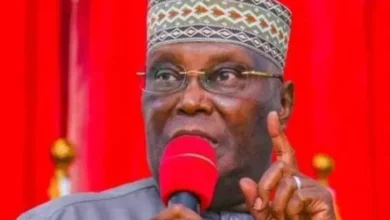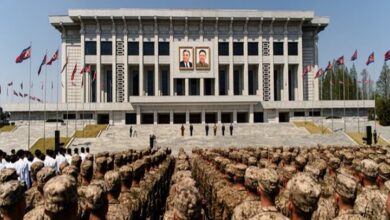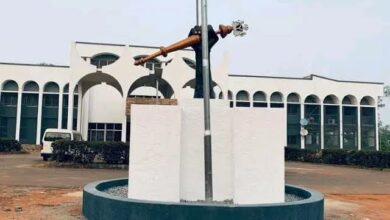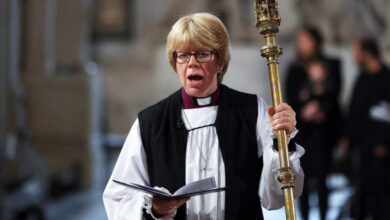UNN, Nnaji’s Certificate and the Perils of Premature Judgment: A Rejoinder to Reuben Abati
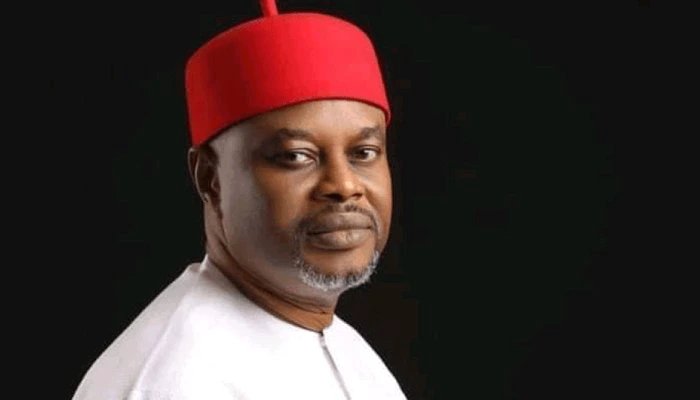
Dr. Reuben Abati’s Tuesday, 7 October 2025 essay, “UNN, Nnaji’s Certificate and a Troubled Nation,” was, characteristically, an eloquent piece — polished, persuasive, and steeped in his trademark intellectual flourish. Yet beneath its literary elegance lay a disquieting lapse in professional judgment, fairness, and ethical moderation. In interrogating the controversy surrounding the now-resigned Minister of Innovation, Science, and Technology, Chief Geoffrey Uche Nnaji, Abati’s intervention veered from sober analysis into the realm of prejudgment and institutional disparagement. His sweeping assertion that the University of Nigeria, Nsukka (UNN) “has raised questions about its own integrity” was not only hasty but gratuitously damaging to an institution that, for more than six decades, has symbolized academic rigor and moral rectitude in Nigeria. Instead of a measured dissection of facts, Abati elected to caricature UNN and its Vice-Chancellor, Professor Simon Uchenna Ortuanya, as though the university were complicit in deceit. That rhetorical overreach, more accusatory than analytical, blurred the line between critical commentary and character assault — an avoidable descent from reasoned journalism into the perils of moral grandstanding.
In a curious but telling twist, Dr. Abati did not pause to reflect on the measured reactions that followed his initial remarks; instead, he chose to double down on his castigation of the University of Nigeria, Nsukka, during the Morning Show of Wednesday, 8 October 2025, a live programme on Arise News. Picking up from his Tuesday commentary, he reiterated and amplified his earlier accusation that UNN was “speaking from both sides of its mouth” over its handling of the matter, this time adding that the institution was “flip-flopping” over its records, a phrase he repeated for emphasis. Abati went further to mock the university’s alumni, remarking that the situation was a “thorough embarrassment” to those who proudly parade themselves as “Lions and Lionesses.” This rhetorical escalation, bordering on ridicule, was both unnecessary and unfair. While robust debate remains the lifeblood of democracy, such sweeping generalizations from a respected public intellectual risk deepening public cynicism toward national institutions rather than encouraging introspection or reform. Indeed, for someone of Abati’s journalistic pedigree and legal training, this descent into invective against an institution still navigating an unfolding controversy was unbecoming. His recourse to language like “flip-flopping” and “speaking from both sides of its mouth” – metaphors more suited to political combat than academic critique – not only trivializes the complexity of institutional record-keeping but also undermines the very ethic of restraint expected when judicial proceedings are pending.
Like every reputable institution of higher learning, the University of Nigeria, Nsukka (UNN) operates within established procedures designed to protect both the integrity of its academic records and the rights of individuals. When discrepancies emerge—especially those involving student data from several decades ago— the university is obliged to verify and re-verify before issuing any categorical public statement. To dismiss this institutional prudence as “speaking from both sides of the mouth” or, as Dr. Abati reiterated, “flip-flopping,” is to fundamentally misconstrue how due process functions in academia. The university’s initial correspondence merely acknowledged that existing records confirmed Mr. Nnaji’s enrolment in the Department of Biochemistry/Microbiology. A later clarification, following more exhaustive verification, established that he did not complete the requirements for graduation and, therefore, could not have been awarded a degree. These are not contradictions but sequential stages in fact-finding. In academic terms, attendance is not graduation. Universities confer degrees only after all prescribed conditions such as coursework, examinations, and requisite clearances, have been fully satisfied. The distinction may appear subtle to outsiders, but within the academy, it is a cornerstone of institutional credibility and scholarly integrity.
In the weeks following the publication of Abati’s piece, developments have moved swiftly and decisively. Chief Geoffrey Nnaji has tendered his resignation as Minister of Innovation, Science, and Technology. In a statement by the Special Adviser to the President on Information and Strategy, Mr. Bayo Onanuga, President Bola Tinubu confirmed that he had “accepted the resignation of Geoffrey Uche Nnaji following certain allegations against him,” while commending his service and wishing him well in future pursuits. In his resignation letter, the former Minister clarified that his decision was not an admission of guilt but a “principled step to uphold due process and protect the integrity of the ongoing judicial process.” His own words were unequivocal: “My decision to step aside is therefore a personal choice — not an admission of guilt, but rather a principled decision to respect the sanctity of due process and to preserve the integrity of the judicial proceedings currently before the court.” This statement highlights two essential points that Abati’s commentary failed to recognize: first, that the matter is sub judice; and second, that UNN’s cautious, methodical approach to the inquiry was not only appropriate but entirely warranted.
The sub judice principle — which cautions against public commentary on matters still before the courts — is far from a procedural nicety. It exists to safeguard the sanctity of judicial proceedings and to forestall the dangerous spectacle of trial by media. This is where Dr. Abati’s gravest lapse lies. As both a journalist and a trained legal mind, he ought to know that pronouncing judgment on a case pending before a competent court is not only injudicious but ethically untenable. His essay, though dressed in eloquence and erudition, effectively sought to convict both Mr. Nnaji and the University of Nigeria, Nsukka, in the court of public opinion. Meanwhile, the Enugu State Government has unequivocally dissociated itself from the entire controversy. In an official statement signed by the Director of Information, Mr. Chukwuemeka Nebo, the government urged the former Minister to “carry his own cross and clear his name before Nigerians,” emphasizing that it had no involvement whatsoever in the allegations. That categorical clarification renders untenable the narrative that the saga was politically orchestrated — a point Abati, in his haste to dramatize, failed to substantiate.
Perhaps the most disquieting aspect of Abati’s essay was its slide into ridicule. His insinuations that Nnaji could “rent a crowd,” “play the ethnic card,” or “hire spiritualists” were unbecoming of the lofty intellectual stature from which he has so often moralized to the nation. Even more ironic was his derision of Nigerians for their “obsession with titles” — his sneer that “even mechanics now call themselves Doctor this or Doctor that.” This comes from the same Abati who once publicly rebuked an Arise News reporter, on live television, for omitting the prefix “Dr.” before his name. Such inconsistencies betray a strain of selective morality: a readiness to hold others to standards he himself occasionally sidesteps. The philosopher’s robe, it appears, drapes uneasily on one who preaches virtue but falters in practising it.
The University of Nigeria, Nsukka (UNN), remains one of the country’s most esteemed centres of learning — a reputation no fleeting controversy can diminish. Founded in 1960 as Nigeria’s first indigenous and autonomous university, UNN has remained steadfast in its mission encapsulated in its timeless motto: “To Restore the Dignity of Man.” Its alumni distinguish themselves across every sphere — medicine, law, engineering, diplomacy, the arts, and academia. To malign the integrity of such an institution on the basis of a single, disputed episode is both unreasonable and unjust. In fact, UNN’s handling of the Nnaji matter reflects institutional restraint and maturity. It eschewed the lure of sensationalism, choosing instead to rely on official records, procedural rigour, and due process. If public institutions across Nigeria demonstrated this level of discipline and adherence to principle, our democracy would undoubtedly rest on a sounder ethical foundation.
Abati’s essay unwittingly exposes a larger malaise — the tendency among segments of Nigeria’s media elite to blur the line between commentary and condemnation. The duty of the press is not to usurp the courts, but to enlighten the public with accuracy and balance. When journalists assume the role of prosecutors, the moral authority of the profession erodes. Public intellectuals, more than most, should appreciate the potency of language in shaping perception and influencing judgment. In sensitive moments, restraint is not a sign of timidity but an expression of wisdom. What Nigeria urgently requires is not heightened indignation but heightened discernment — the capacity to distinguish verified fact from conjecture, and genuine substance from mere spectacle.
Now that Chief Nnaji has stepped aside, it is only proper that the storm be allowed to subside where it rightly belongs, in the courts, not in the commentariat. The facts should be tested by law, not by the loudness of opinion. Thus far, the University of Nigeria has demonstrated commendable fidelity to due process and respect for the rule of law. Both the Vice-Chancellor and the Senate have acted squarely within their statutory mandate, guided by institutional integrity and decorum. That alone deserves public acknowledgement. In the meantime, self-appointed commentators would do well to refrain from remarks that may verge on contempt, since the matter remains before the judiciary. Dr. Abati, as both a journalist and a legal practitioner, should have been the first to recognize this boundary.
In conclusion, the University of Nigeria, Nsukka, owes no defence to any mob tribunal. Its name rests securely on a legacy of diligence, integrity, and resilience. The certificate controversy surrounding Chief Geoffrey Nnaji and his subsequent resignation, though regrettable, offers valuable lessons in accountability and humility. It reinforces the truth that in a democracy, public office is a trust, not a birthright. It also reminds every commentator that words, once released, can either strengthen institutions or undermine them. As a local proverbial lore aptly puts it, “The sun may hide behind the clouds, but it never disappears.” In due course, the light of truth will break through – and Nigerians will discern clearly who stood for justice and who merely sought the glare of attention.
Post Views: 374

